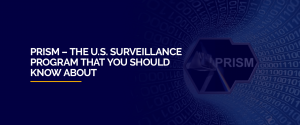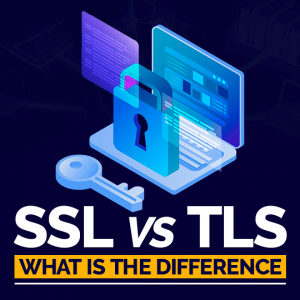

Get 93% OFF on Lifetime
Exclusive Deal
Don’t miss out this deal, it comes with Password Manager FREE of cost.
Get 93% off on FastestVPN and avail PassHulk Password Manager FREE
Get This Deal Now!By Nick Anderson No Comments 6 minutes
The fundamental principle of privacy dictates that personal information is owned by the person it belongs to unless explicitly shared. Every social convention has this core tenet engrained. It is only ethical to respect an individual’s privacy; it’s something we universally expect. But the online world is particularly different in terms of how dangerous it can be for your privacy.

Privacy advocates have long argued that governments around the world actively spy on their citizens. While that sounded like a conspiracy theory to some, that changed in 2013 when evidence of a major surveillance program came under the spotlight. The government of the United States runs a spy program known as a PRISM. It is a surveillance program to collect user data.
The Guardian and Washington Post revealed the existence of PRISM in a joint collaboration in 2013. An ex-NSA contractor by the name of Edward Snowden was the source of the leaks.
Snowden provided documents that shed light on the NSA’s surveillance and the extent of it. PRISM is set up to collect data on users under the Foreign Intelligence Surveillance Act (FISA). The law grants NSA the power to collect data without a warrant from service providers. After the 9/11 attack, the U.S government made amendments to FISA’s authority, in a bid to thwart terrorism by gathering intelligence on international communication. It meant running surveillance on non-US citizens and U.S. citizens who communicate with foreigners.
The documents also alleged that the NSA has direct access to the servers of big tech companies: Google, Facebook, Apple, Yahoo, and more. The allegation meant that the NSA could retrieve information on individuals whenever they desire.
NSA’s data collection was something of an open secret. Several reports claimed over the years that NSA was spying on phone calls and messages of people in the U.S. after the 9/11 incident. Snowden’s revelation of classified documents was the first time that such evidence had come to light.
The NSA works to gather intelligence to uncover potential threats and stop them before they happen. The world today is more digital than it was just a decade ago. More devices are coming online every year, and internet access is reaching places where it was once difficult—the NSA doubled-down on its surveillance to involve more aggressive digital monitoring systems.
PRISM is an electronic data collection program established for foreign intelligence, but its workings are a little murky. It was described as a means to collect foreign intelligence for the purpose of national security, but it has collected data on U.S citizens. The Foreign Intelligence Surveillance Court (FISC) is what produces legal requests for data retrieval from service providers.
According to Snowden’s documents, NSA has direct access to the servers to big tech service providers. Google, Facebook, Apple, and Yahoo have dismissed these allegations. The platforms have strongly opposed the claims that there are backdoors installed for the government to access. However, the NSA can submit a request for information on an individual, and the platform will review the request legally before complying.
But the reality is not so pragmatic. The same documents also revealed a court order that compelled Verizon to share data on its customers. The information includes metadata of the calls, the number of participants, geo-location, IMEI, duration of the call. The collection includes foreign communication and communications within the U.S. The court order put Verizon under an NDA over the existence of data requests; it also confirmed that Verizon was frequently sharing user data with the NSA.
The FISC’s affairs are not public, which raises concerns over what requests are made and how much of that is legal under the Fourth Amendment that protects user privacy. All we know is that NSA can get a court order that legally demands user information from tech companies. Even though Facebook and Google say they only ever comply with lawful requests specific to an individual, the court order for Verizon quite clearly explains that NSA asks for blanket data collection.
We wish there was some knob that could prevent data from ending up with third-parties, but there’s not much that can be done to prevent it. The government can request platforms to share information under the law. As we said, the FISC operates under secrecy, so there is no way to scrutinize it. Section 702 of the FISA gives the NSA power to request data from tech companies – that’s all we know.
The U.S Court of Appeals recently concluded the PRISM program as unlawful. In 2011, A man was charged with assisting foreign terrorist groups. The NSA collected not only his email exchanges but the contents of those emails as proof without a warrant. It was another evidence that the NSA has the authority to swoop in and demand not just metadata, but has the power to comb through the contents of messages shared in privacy. While it may have foiled something sinister in the making, it was a violation of the Fourth Amendment, as per the law.
Although under Section 702, the NSA cannot target a U.S citizen or someone in the U.S. But, the warrantless search can be carried out if one person in the communication is a foreigner. As a U.S citizen, your privacy will be indirectly affected.
Governments do not like VPN because it conceals the messages with encryption. It bypasses the ISP and relies on the VPN server to fulfill DNS requests, thus eliminating activity logging. So while it knows that you are connected to a VPN, the final destination of the data is something that the ISP cannot see. Although you cannot prevent the government from asking data from the platforms that you use, you can prevent ISP monitoring by hiding activities via a VPN. Whether it’s government surveillance or Net Neutrality, a VPN helps in some capacity.
Intelligence agencies such as the NSA work to ensure that the country is safe from internal and external threats. The law gives them the power to act swiftly, but it’s also a double-edged sword. Without oversight, there are serious implications that the NSA can freely monitor telephonic and internet communication in bulk. It is an active program thanks to the renewal of Section 702.
Making your voice heard is a fundamental right that should be exercised so that such programs are not misused.
© Copyright 2024 Fastest VPN - All Rights Reserved.


Don’t miss out this deal, it comes with Password Manager FREE of cost.
This website uses cookies so that we can provide you with the best user experience possible. Cookie information is stored in your browser and performs functions such as recognising you when you return to our website and helping our team to understand which sections of the website you find most interesting and useful.
Strictly Necessary Cookie should be enabled at all times so that we can save your preferences for cookie settings.
If you disable this cookie, we will not be able to save your preferences. This means that every time you visit this website you will need to enable or disable cookies again.


